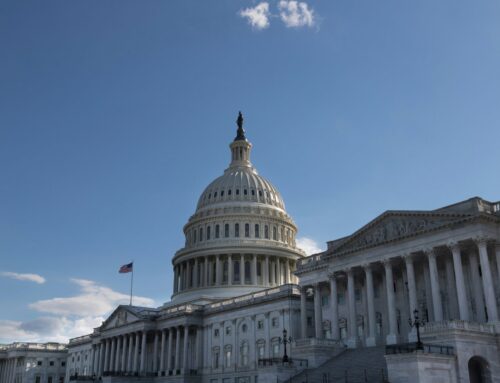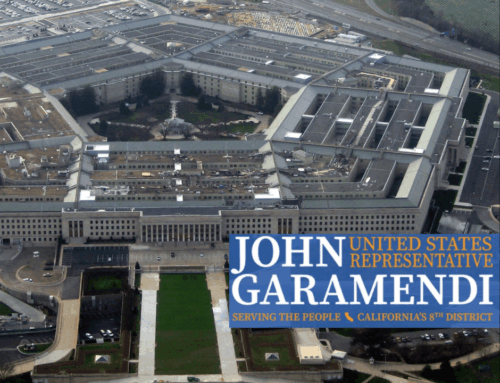The debate over raising the debt ceiling continues to dominate the news, but you’ve already heard our strongly held views. This week we turn instead to one of the drivers of our nation’s debt — spending. Specifically, a seemingly insatiable appetite for spending on defense.
Year after year, the Department of Defense (DOD) receives a generous cash infusion from Washington. In fiscal year 2023, the Pentagon’s budget exceeded $800 billion. However, what if we told you that generosity includes money that the DOD did not ask for, specifically $12.2 billion in the current fiscal year to fund 996 defense research projects? Perhaps you will find that a bit surprising.
There is a precedent for lawmakers adding on to budget bills in order to fund special projects favoring their own interests or that of their constituents. You may recall our podcast episode on the earmarks, err community project funding, which are those lawmaker-derived provisions directing money for specific projects or programs, often in their home states and districts. Past instances of corruption and voter dislike of earmarks lead Congress to ban, then rebrand and heavily restrict earmarks, including a ban on earmarks directed to private for-profit corporations.
If necessity is the mother of invention, then restrictions may very well be the parent of workarounds. In this case, the workaround involves a distinction—perhaps one with little or no difference—between earmarks and the $12.2 billion in question. The basis of the distinction is competition. Because the $12.2 billion is for research and development initiatives for which contractors are supposed to compete, those additional funds are generally not treated by the appropriations committee as earmarks. (The logic here is that the competition means no lawmaker is awarding those funds to a specific company that serves their own interests.) In other words, Congress is free to provide the DOD with money—on top of what is requested—so long as those funds will be competed. And these plus-ups are therefore not subject to the disclosure requirements for earmarks.
But it’s a farce. These are earmarks in every way but the name.
This research and development is typically done by for profit corporations, which is fine. But often, the funding lines that lawmakers insert into budget bills are comprised of language so bespoke to a specific contractor that other companies don’t bother to provide a bid. In this way, these taxpayer funds are being spent, not by any consensus nor any best-value analysis, but by the interests and dictates of a particular lawmaker. Lawmakers even send out press releases touting the funds they secured for their districts, before the contract “competition” even begins.
For some it’s tempting to treat $12.2 billion in an $800 billion defense pie (or a $4 trillion total federal feast) as small potatoes. But this isn’t the only place in the defense budget Congress whets its appetite. Every year various sub agencies in the Pentagon are legally required (by Congress) to produce an unfunded priority list (UPL). These are wish lists for items that the budgetary bosses in the military decided were not enough of a priority to make it into an $800 billion budget. And it adds to the total tab. It’s also worth noting only a handful of the 996 research and development projects worth $12.2 billion showed up on a UPL so it’s really Congress and contractors driving that train.
So, what needs to happen in order to achieve greater transparency on how these funds are being used? For starters, we think taxpayers deserve to know the scope and function of these defense research projects. We also advocate for more transparency on how these funds are awarded to contractors and whether effective competition is taking place. Taxpayers have a right to know how their money is funding the military, especially when that money is on top of what the Pentagon asks for.
In the end, a Congress focused on paring down debt needs to focus on the biggest driver of deficits—Congress. Like the trope “the common thread in all your failed relationships is you,” the common thread in our burgeoning debt is Congress. Until lawmakers are willing to restrain themselves, starting with spending accounts they love, debt limit debates are likely to be a recurring nightmare.










